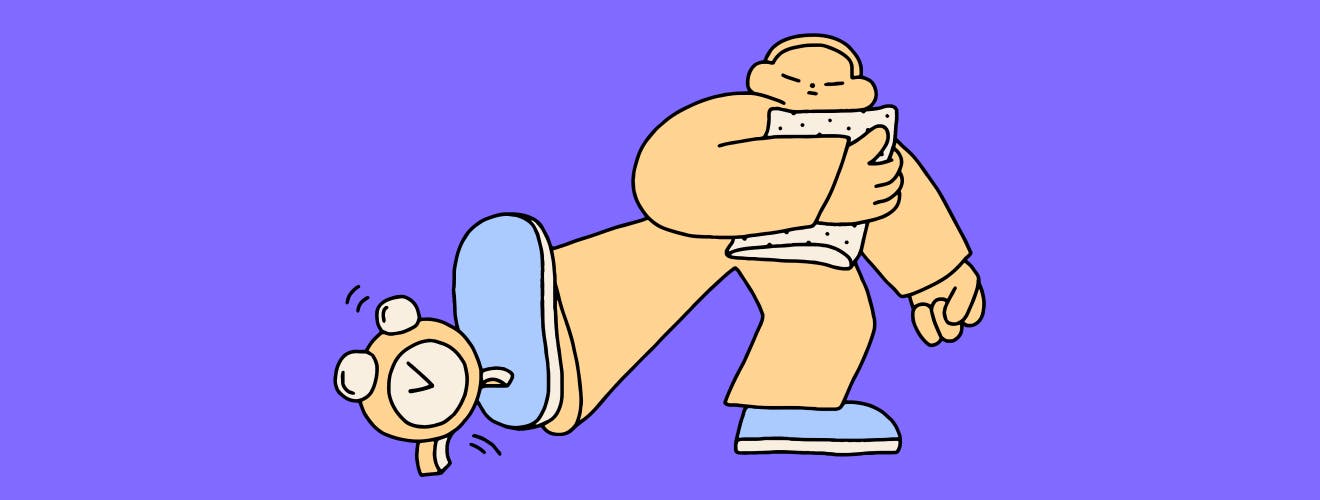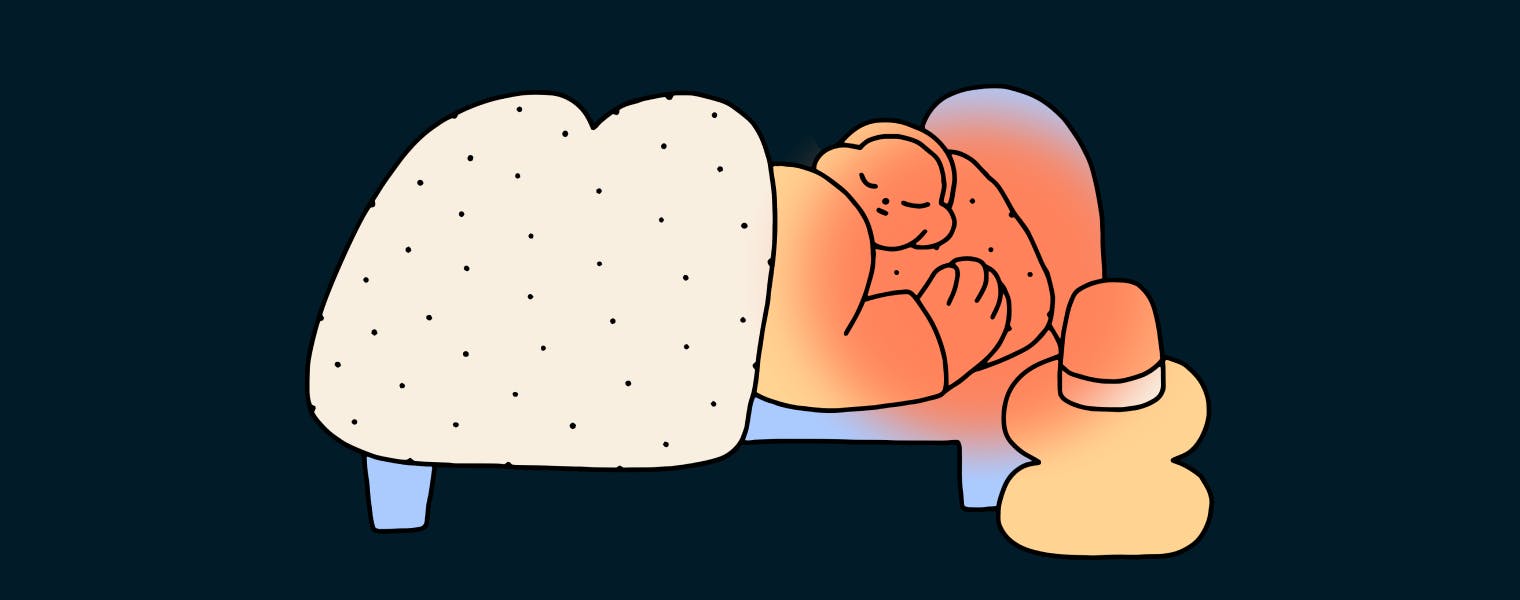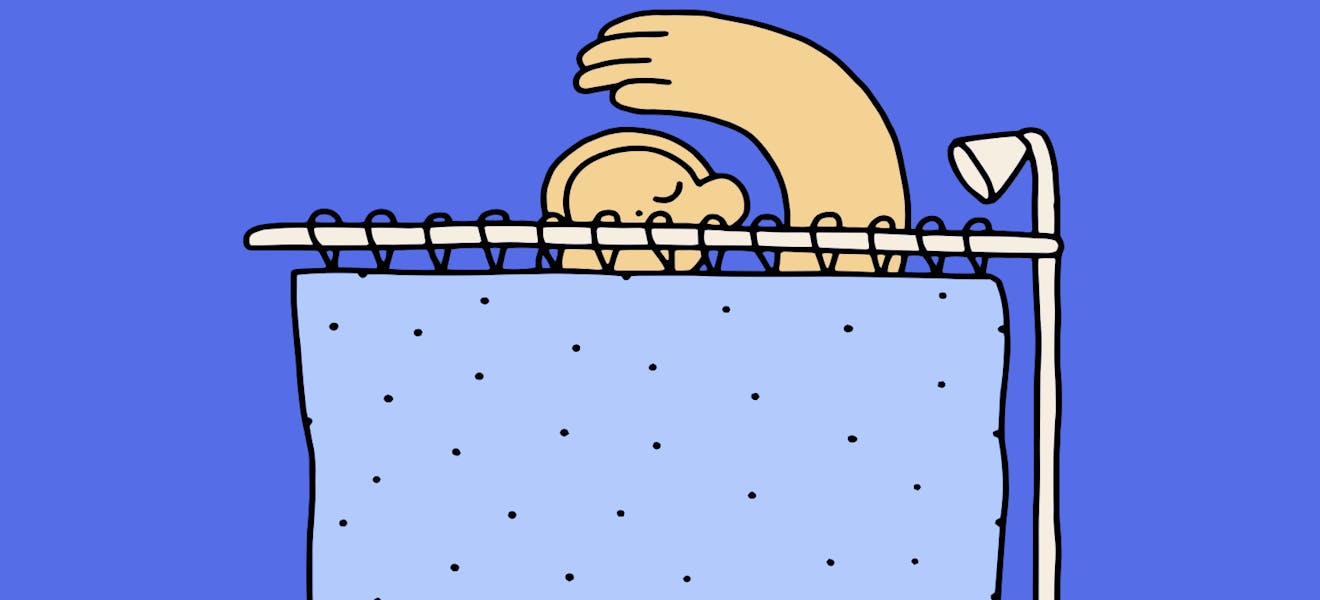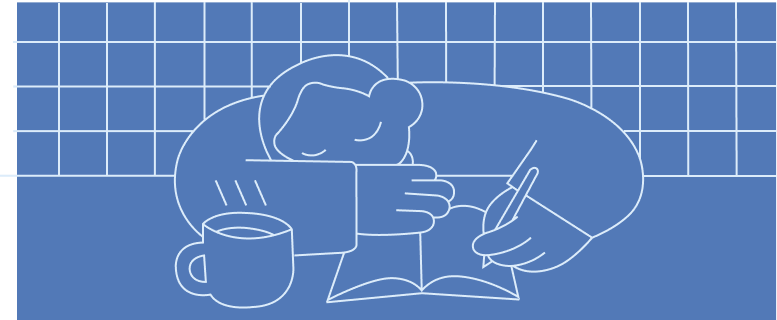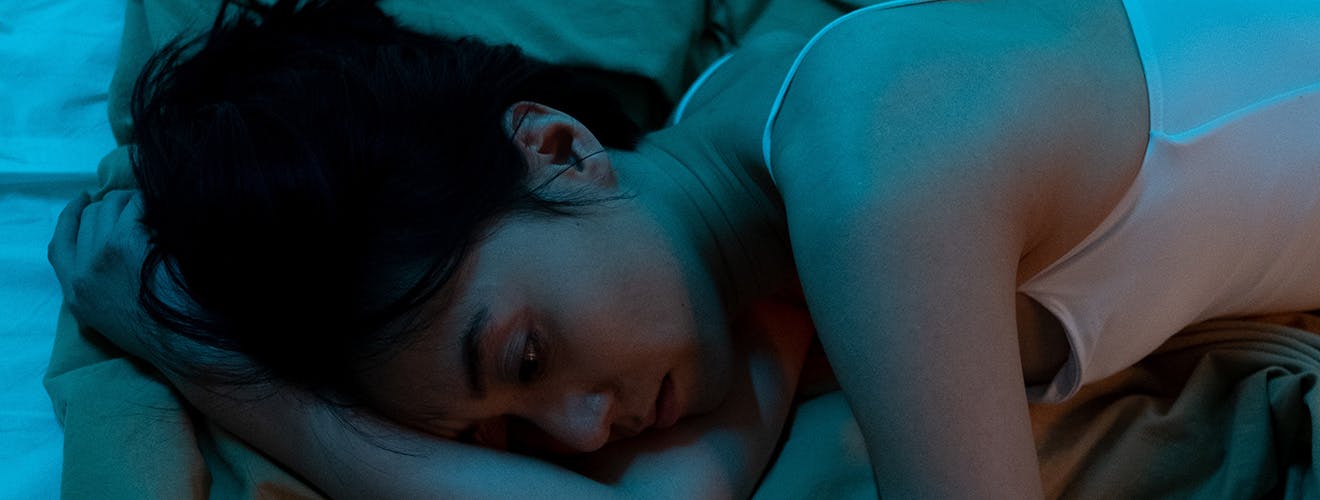How to Stop Snoozing Your Alarm
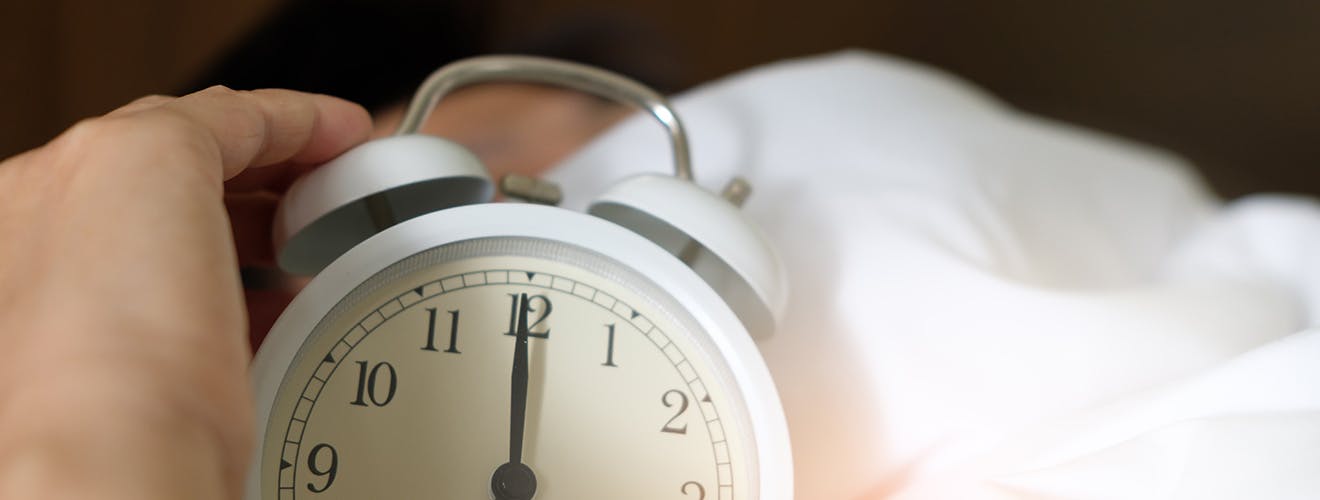
Interested in learning how to stop snoozing your alarm? Read on. In this article, we'll explore the motivations behind sneaking in a few more minutes of sleep, the effects it has on your ability to function throughout the day, and how to break out of that routine.
Why Do I Keep Hitting Snooze?
At one point or another, we've all used the snooze button to silence our alarms and sneak in a few more minutes of sleep. While it’s easy to dismiss this as a lazy move, there’s a legitimate reason for doing so, and it's called sleep inertia.
The phrase refers to the heavy sensation of grogginess right after you wake up. It makes you feel tired, disoriented, and unwilling to get out of bed. It isn’t the only thing that makes it hard to get up, either.
While it isn’t classified as one of the sleep disorders, sleep inertia can be particularly tough to deal with if combined with mood disorders and rapidly shifting sleep schedules. Think of shift workers whose schedules change and can include working graveyard hours.
It also doesn’t help that 1 in 3 adults are sleep-deprived and don’t get the recommended hours of sleep. If you belong to that sleep-deprived demographic, then it's no wonder why you keep hitting the snooze button when transitioning from being asleep to being fully awake.
Is Hitting Snooze Bad for You?
The snooze button was invented to help you wake up from sleep gently. As long as you use it occasionally and it doesn’t interfere with your day-to-day life, it shouldn’t be a problem. However, if you’re using the snooze button to clock in a few extra minutes of sleep daily and it’s begun to affect the rest of your day, it may be time to check your snooze addiction.
Why is the snooze button bad for you? Let’s take a closer look at what happens to our bodies while we sleep.
During the night, our body transitions from one sleep cycle to the next. We need to spend enough time in the rapid eye movement (REM) cycle to wake up feeling rested. REM is one of the sleep stages that happens towards the tail end of our rest. When this stage is interrupted by an alarm, it impacts our ability to achieve a good night's sleep.
When the New York Times spoke to University of Pennsylvania associate professor of medicine Ilene Rosen she confirmed, “For most of us, that alarm is going off at a time when we are likely having REM sleep, one of the most restorative stages of sleep.” Rosen adds that even if we use the snooze button and go back to sleep, we aren’t likely to achieve the same restful sleep we were enjoying before being woken up.
Hitting the snooze button doesn’t mean we get better rest. It may only prolong sleep inertia. If you’re intent on replacing this habit, you may want to make some changes to your sleep schedule and habits so you get enough sleep and don’t press snooze when it’s time to get up.
Is hitting snooze a habit you can break? Absolutely. Let’s take a look at how to do it.
Stop Hitting the Snooze Button With These 6 Tips
Now that we understand why it’s so hard to get out of bed each morning, let’s see how we can stop hitting the snooze button, get a better night’s rest, and wake up feeling refreshed.
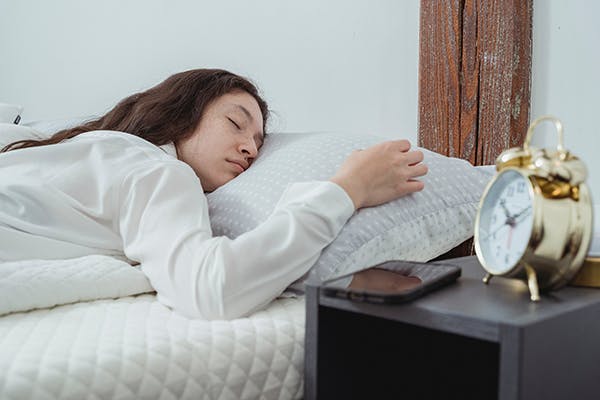
Try Out Some Sleep Aids
Not getting adequate rest puts our physical and mental well-being at risk, especially when it’s been going on for some time. While there are many things you can do to help you get a good night’s sleep, you can also combine them with sleep aids to ensure good rest.
If you're hesitating on account of unwanted side effects, stick to all-natural alternatives. Sandland Sleep supplements offer a full eight hours of rest without the grogginess that typically accompanies other sleep aids.
Made with natural hemp-derived ingredients known for their gentle sleep-promoting properties, our Fast Asleep and Stay Asleep supplements can help you align your sleep-wake cycle and combat daytime sleepiness.
Get In Sync With Your Sleep Cycle
We sleep in stages and sometimes. Unfortunately, it's not uncommon for the alarm to go off when we're in a deep sleep cycle or during REM sleep. This explains why we feel sleep inertia and grogginess when we wake up.
To prevent this from happening, it’s a good idea to monitor your sleep cycles so you can get up without unnecessarily jolting your body awake. There are sleep-tracking apps that you can use to do this.
These platforms monitor your breath and body movements and use that information to identify when you are in a light sleep stage. That's how they determine the most opportune window to wake you up.
Go To Bed Earlier
You can’t be an early riser if you regularly get to bed late. Try shifting your bedtime to earlier in the evening by small and manageable increments.
These small adjustments will allow your body to naturally adapt to a new and healthier schedule. Not forcing yourself to fall asleep at a drastically different hour from usual is also a good way to minimize stress.
Get Moving
You’re tempted to hit snooze because you stay in bed after the alarm goes off. Getting on your feet can help change that. As soon as your alarm rings, get out of bed even if you feel tired or groggy.
If you feel like it's physically impossible to do so, move your alarm from your nightstand to further away in the room. This will make you get out of the bed, even if it’s just to turn the alarm off.
Some apps even require you to solve a math problem in order to switch the alarm off. That's a pretty good way to shake off what remnants of sleep remain and increase your chances of actually getting up.
Even if you feel groggy in the beginning, some discipline is necessary if you want to stop hitting snooze and start healthier habits.
Improve Your Sleep Hygiene
There are many ways to improve sleep hygiene. You can optimize your environment to make it more relaxing for quality sleep. Here are a couple of techniques you can use to achieve that:
- A cool and dark room can be conducive for rest. If you have trouble waking up in the morning, you may want to consider sleeping in a brighter room that allows natural light in.
- Use comfortable and cozy bedding.
- Make it a point to go to sleep and get up at the same time every day, even on weekends.
- Refrain from using phones, tablets, and other electronic devices at least half an hour before going to bed. The glare from their screens emits blue light which is known to keep us alert and boost our moods right when we need to relax.
- Instead of staring at your phone and attending to emails and work-related matters, adopt a relaxing routine before going to sleep. You can try reading a book, sipping chamomile tea, listening to calming music, and having a warm bath.
One of the best ways to stop snoozing is to get better sleep by being more mindful of your environment and sleeping habits. You may also want to drink a cold glass of water right after waking up. This can help you become more alert while replacing vital fluids you lost while you were sleeping.
Give Yourself A Reason To Stop Pressing Snooze
Ever notice that looking forward to something makes it a little easier to lean into the morning routine? When the alarm sounds, you get up feeling positive and anticipating the activity you’ve planned. It also helps keep you from pressing snooze.
Conclusion
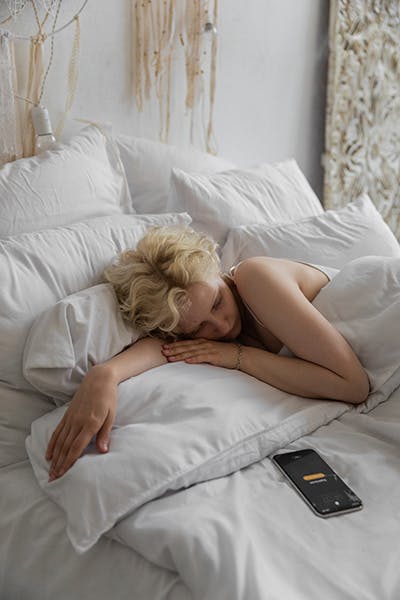
Catching an additional ten minutes of shut-eye by hitting the snooze button is extremely tempting, but it can also prevent you from having a productive day ahead.
The best way to deal with one’s snooze addiction is by falling asleep and waking up at regular hours to ensure you get enough sleep. It can be hard at first to get out of bed as soon as your alarm goes off, but as your body gets used to it, it will seem more and more natural.
Hitting the snooze button can actually do more harm than good. It can make you feel more groggy and tired. While doing so occasionally is fine, it can become a bad habit that messes with your body’s internal clock, further impacting your sleep quality and the duration of your rest.
Yes, you can. Go to the iOS Clock app, tap the alarm tab and click on edit. Once you’ve chosen an alarm, you can switch off the snooze setting to avoid snooze abuse.
Hitting snooze is not harmful so long as you're not doing it every day. Once it becomes a habit, you may end up being late to your engagements and find yourself rushing to catch up with your schedule. It’s better to get a good rest and get out of bed when your alarm clock rings than to hit snooze.
